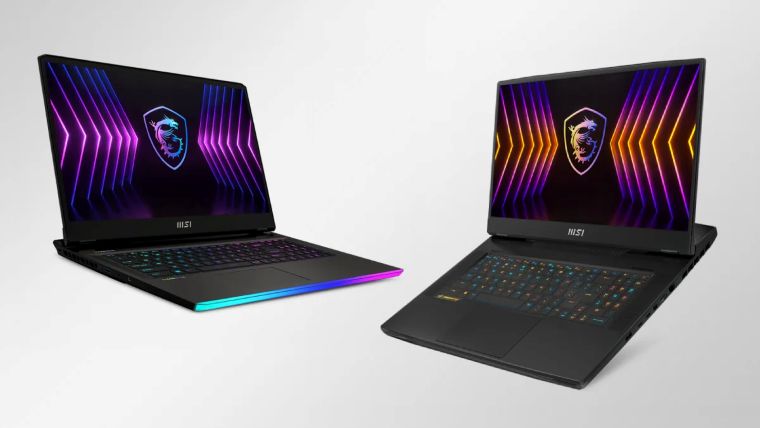When it comes to high-performance gaming laptops, MSI has established itself as a leader in the industry. Two of its most powerful and iconic models—the MSI Raider and the MSI Titan—have both received major updates in 2025. Gamers and creators are now asking the big question: Which laptop is the better choice for me?
Both machines are designed for serious performance, but they cater to different needs. In this guide, we’ll compare the MSI Raider vs. MSI Titan in terms of design, performance, display, cooling, portability, and price to help you decide which one fits your gaming lifestyle.
MSI Raider: High Performance in a Sleek Package
The MSI Raider series has always been known for delivering desktop-level power while still being relatively portable. The latest Raider comes with Intel 14th Gen HX-series CPUs and NVIDIA RTX 40-series GPUs, making it a true gaming beast.
Key Features of the MSI Raider
-
Up to Intel Core i9 14900HX processor
-
NVIDIA RTX 4090 GPU with DLSS 3.0 support
-
Up to 64GB DDR5 RAM
-
Fast NVMe SSD storage, up to 4TB
-
17-inch QHD+ 240Hz display with G-SYNC support
-
Advanced Cooler Boost 5 cooling system
The Raider balances performance with portability. At around 2.9kg, it is still relatively mobile for a high-end gaming laptop, making it suitable for gamers who want power without sacrificing too much mobility.
MSI Titan: The Desktop Replacement
If the Raider is about balance, the MSI Titan series is about no compromise. The Titan is often considered MSI’s flagship gaming laptop, built to replace a full desktop PC. The 2025 model pushes boundaries with extreme performance and premium features that appeal to hardcore gamers and content creators.
Key Features of the MSI Titan
-
Up to Intel Core i9 14980HX processor (with higher boost speeds than Raider)
-
NVIDIA RTX 4090 GPU with maximum power configuration
-
Up to 128GB DDR5 RAM—double the Raider’s capacity
-
Dual SSD slots, up to 8TB storage
-
4K Mini-LED HDR 120Hz display with ultra-high brightness
-
Cooler Boost Titan cooling system with vapor chamber technology
-
Mechanical per-key RGB keyboard by SteelSeries
The Titan is heavier and bulkier at around 3.5–4kg, but that’s because it packs in more cooling capacity and premium components. It’s the ideal choice for users who want the absolute best and don’t mind sacrificing portability.
Raider vs. Titan: Side-by-Side Comparison
1. Design and Portability
-
Raider: Sleek, futuristic design with customizable RGB lighting. Lighter and easier to carry around.
-
Titan: Bold, massive design that screams performance. Heavier and more suited as a desktop replacement.
Winner: Raider (if portability matters).
2. Performance
-
Raider: Handles AAA games and demanding tasks with ease. Ideal for gamers who want high-end specs without going overboard.
-
Titan: Overkill performance with higher CPU/GPU power limits and more RAM capacity. Perfect for competitive eSports and 4K video editing.
Winner: Titan (ultimate performance).
3. Display
-
Raider: 17-inch QHD+ with 240Hz refresh rate, great for fast-paced gaming.
-
Titan: 17-inch 4K Mini-LED with HDR, perfect for creators and cinematic gaming.
Winner: Tie (Raider for speed, Titan for visuals).
4. Cooling System
-
Raider: Cooler Boost 5—efficient and quiet under most loads.
-
Titan: Cooler Boost Titan with vapor chamber for maximum thermal headroom.
Winner: Titan (better for sustained workloads).
5. Keyboard and Build Quality
-
Raider: Standard MSI RGB keyboard with smooth typing experience.
-
Titan: Mechanical per-key RGB keyboard, tactile feel, and premium build.
Winner: Titan.
6. Price and Value
-
Raider: Starts around $2,499, depending on specs.
-
Titan: Starts around $3,999, with high-end models exceeding $5,000.
Winner: Raider (better value for most gamers).
Who Should Buy the MSI Raider?
The MSI Raider is ideal for:
-
Gamers who want high-end performance but also need portability.
-
eSports players who benefit from high refresh rate QHD displays.
-
Streamers who want power at a more reasonable price.
-
Students or professionals who game but also carry their laptop to work or school.
In short, the Raider is the balanced choice—powerful enough for AAA titles but still practical for everyday use.
Who Should Buy the MSI Titan?
The MSI Titan is designed for:
-
Hardcore gamers who want the absolute best specs available.
-
Content creators working with 4K video editing, 3D rendering, or AI workloads.
-
Users replacing a desktop PC with a portable powerhouse.
-
Enthusiasts who value premium features like mechanical keyboards and 4K Mini-LED displays.
If budget is not a concern and you want the ultimate machine, the Titan is unmatched.
Final Verdict: Raider or Titan?
So, MSI Raider vs. MSI Titan—Which New Laptop Should You Buy?
-
Choose the MSI Raider if you want a powerful, portable, and relatively affordable gaming laptop. It’s perfect for gamers who want performance without extremes.
-
Choose the MSI Titan if you want desktop-class performance in a laptop form factor, and portability is less important than raw power.
Both are outstanding laptops, but the right choice depends on your priorities—portability and price (Raider) or ultimate performance and premium features (Titan).
Either way, MSI has ensured that in 2025, gamers and creators alike have access to some of the most powerful laptops ever made.









